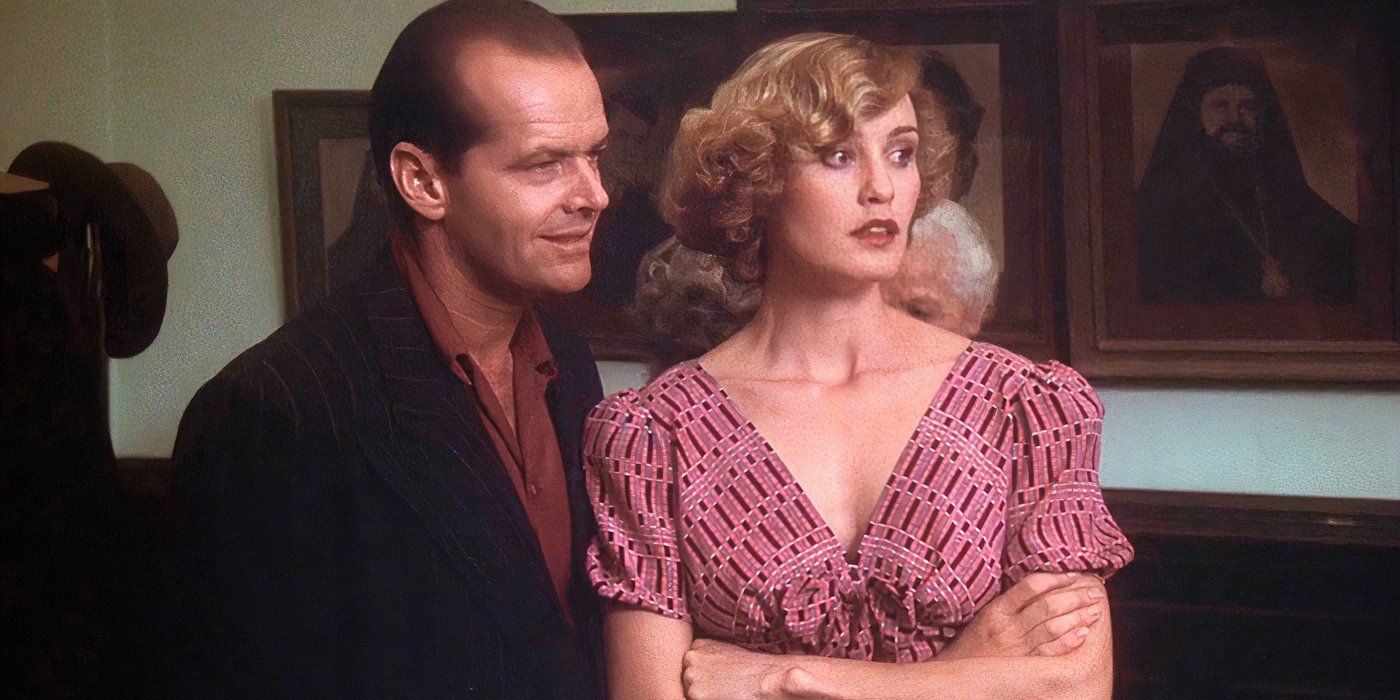James M. Cain‘s The Postman Always Rings Twice has been adapted officially and unofficially many times, most famously in 1946 with Lana Turner and John Garfield. But it’s the 1981 version starring Jack Nicholson and Jessica Lange that best captures the smoldering sexuality and blackened heart of Cain’s novel. Dismissed in its time as, in the words of Roger Ebert, “an absolutely superb mounting of a hollow and disappointing production,” it’s since been hailed as one of the fundamental building blocks of what would eventually become the erotic thriller. Like the best entries in that sub-genre, The Postman Always Rings Twice views sex as an expression not just of passion, but of desperation as well, and you could hardly find two more desperate people than the characters played by Nicholson and Lange.
‘The Postman Always Rings Twice’ Was a New Hollywood Take on Old Hollywood Noir
Nicholson plays Frank Chambers, a Depression-era drifter who wanders into a roadside diner in search of a meal and gets hired as a handyman by the owner, the Greek immigrant Nick Papadakis (John Colicos). Frank falls in love with Nick’s much-younger wife, Cora (Lange), who desperately wants to escape her loveless marriage. She and Frank conspire to kill Nick, staging an elaborate car crash and making it look like an accident. Although the police have their doubts, they don’t have enough evidence to prove Nick was murdered, and Cora’s lawyer, Katz (Michael Lerner), arranges for her to serve probation on a manslaughter charge. Things quickly fall apart for the two lovebirds, first when Frank has an affair with another woman, Madge Gorland (Anjelica Huston), and later when Katz’s assistant, Kennedy (John P. Ryan), tries to blackmail them with Cora’s confession. They decide to stick it out when Cora announces she’s pregnant, yet fate has other plans.
The Postman Always Rings Twice was directed by Bob Rafelson, one of the consequential figures of both the New Hollywood and Nicholson’s career. He co-founded BBS Productions, which produced Nicholson’s star-making vehicle Easy Rider, and directed Five Easy Pieces, which featured his famous “chicken salad sandwich” speech. Both of these films not only helped define the counter-cultural revolution of the 1970s, but also established Nicholson as its leading figure. There are traces of the New Hollywood in The Postman Always Rings Twice, with its frank depiction of sex and pessimistic worldview. The script by David Mamet takes full advantage of the freedoms granted by the dismantling of the Production Code, making explicit what could only be hinted at in the 1946 version. It’s almost unthinkable that Cain’s novel could have been adapted before 1981, considering it hinges upon the depravity and carnality of two lonely souls.

Related
59 Years Ago, Jack Nicholson Starred in Two of the Best Westerns of All-Time — And Wrote One of Them
Double the Jack Nicholson, double the fun.
‘The Postman Always Rings Twice’ Is a Heartbreaking Erotic Drama
From the moment Frank Chambers walks through the door of that roadside diner, his fate is sealed. The Great Depression has sapped him of his will to live, as he drifts from one dead-end to the next. It’s little wonder he agrees to Cora’s hair-brained scheme: after all, when life gives you no options, what do you have left to lose? The fact that an innocent man has to die is beside the point, and how innocent can he be when he’s made Cora’s life so miserable? This bleak worldview is at the heart of film noir, which grew out of the horrors of World War II and the dark aesthetic of German Expressionism. Neo-noirs like Chinatown updated these black-and-white dramas for a technicolor world, and The Postman Always Rings Twice was the next logical step in that development. Like Body Heat released that same year, it put the focus not so much on the crime committed but on the eroticism that inspired it. This, in turn, created the erotic thriller, which viewed sex as a dangerous pretext to murder and mayhem.
The Postman Always Rings Twice is nothing if not erotic. The sex scenes between Nicholson and Lange are so graphic that viewers have questioned if they were staged or real. Yet what distinguishes the film from most erotic thrillers isn’t its sex, but the sadness that’s beneath it. Frank and Cora have been ground down by life, and cling to each other out of loneliness and despair. It’s what makes the ending, when the randomness of life intercedes, so devastating. You know what they say about testing God’s sense of humor by making plans.
